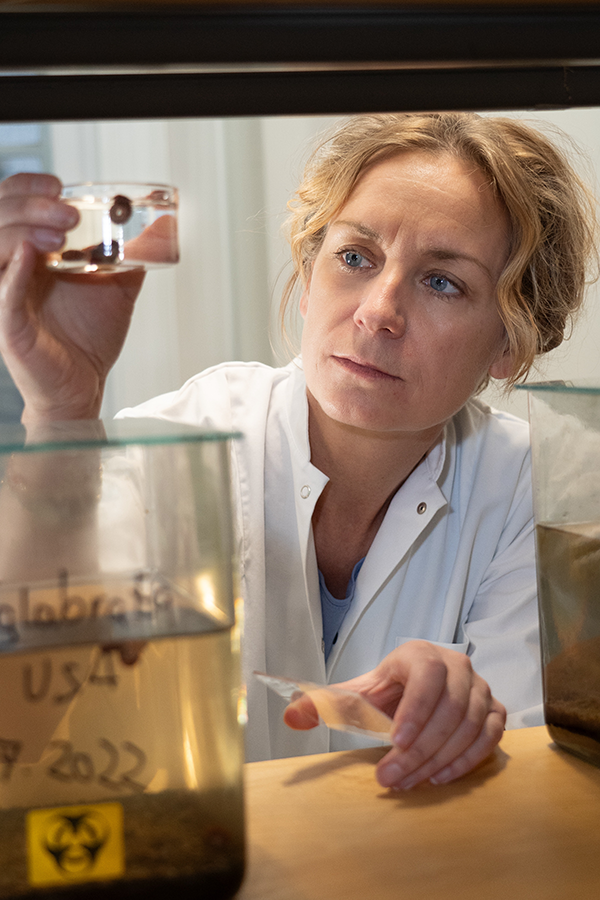University of Copenhagen
Anna-Sofie Stensgaard
About vector-borne diseases
My research delves into how climate and environmental changes affect diseases that are transmitted to animals and humans by small organisms - the vector-borne diseases. I focus primarily on diseases spread by mosquitoes, ticks and freshwater snails.

Unfortunately, rising temperatures often result in an increased risk of spreading vector-borne diseases such as snail fever, West Nile fever and dengue fever. However, climate change is only one of the reasons for the changing dispersal patterns. Loss of biodiversity, destruction of nature and increasing globalisation also play an important role.
Our research results are key to preparing us for the challenges of the future. Among other things, we are developing new monitoring methods and models to better predict and detect when the vectors or the diseases they carry spread to new areas.
Personally, I'm also particularly interested in finding out exactly why this happens. We're pretty good at reacting and at treating diseases, but in my opinion, we sometimes forget to look at the root causes of why diseases spread to new areas or why new diseases emerge. In that respect, I believe that we’ll be able to go one step further in the future.
”Climate change may lead to an increased incidence of vector-borne diseases. But exactly how and to what extent depend on a complex interplay of other factors that we need to understand better.
Meet the researcher
Anna-Sofie Stensgaard is associate professor at the Department of Veterinary and Animal Sciences at the University of Copenhagen.